ANC, ATM, DA, EFF and UDM supporters attending the Battle of the Manifestos in the Eastern Cape. (Photo: Afesis-corplan)
Political parties vying for the support of Eastern Cape voters come 1 November say they will put an end to poor financial management and corruption in municipalities if elected, in a province where audit outcomes have revealed repeated service delivery failures. This includes the ANC, a party with a less-than-perfect governance track record in the province, if the Auditor-General’s reports are anything to go by.
 Cat Moji
Cat Moji A range of political parties took to the stage to sway voters at the “Battle of the Manifestos” event last week.
The event was hosted by Eastern Cape-based development nongovernmental organisation Afesis-Corplan and the Mail & Guardian on 21 October 2021. It featured representatives from the DA, ANC, EFF, UDM, and the ATM.
Each party representative was given an opportunity to present their party’s manifesto, followed by a question-and-answer session, where audience members grilled the parties on their election promises. The event was moderated by political analyst Ongama Mtimka.
All parties had anti-corruption messages to deliver, with representatives recognising the need for stricter internal controls at local government level. They promised better monitoring of councillors, accountability and service delivery.
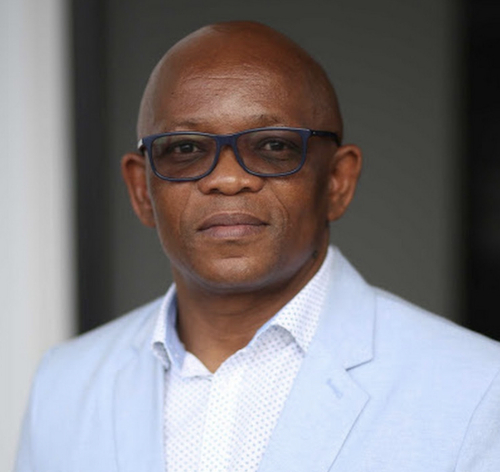 Xolile Nqatha
Xolile NqathaANC committed to rooting out corruption
First up to make promises about rooting out corruption was the ANC’s representative and provincial MEC for Cooperative Governance and Traditional Affairs, Xolile Nqatha. He said the party was committed to rooting out corruption, and that this was already happening in the province.
The ANC’s reputation in the province took a beating recently with the scandal surrounding ANC provincial chairperson and Eastern Cape premier, Oscar Mabuyane. Earlier this month, Public Protector Busisiwe Mkhwebane released a report in which she found that Mabuyane, other provincial officials, and the provincial ANC benefitted from funds that were supposed to go towards a memorial service for Winnie Mandela.
Mabuyane has disputed the report’s contents and is taking the report for judicial review. Nqatha said Mabuyane would have to step aside, as per the party’s step-aside rule, if he is charged with any crimes.
Nqatha said he had personally seen to it that 10 local councillors were removed for alleged corrupt activities. He said the ANC has a track record of providing basic services, expanding the social security net, and ensuring that about 10-million pupils across the country are in no-fee schools. He claimed that the ANC was responsible for ensuring that the R350 Covid-19 grant was in place, to applause from the party’s supporters in the audience.
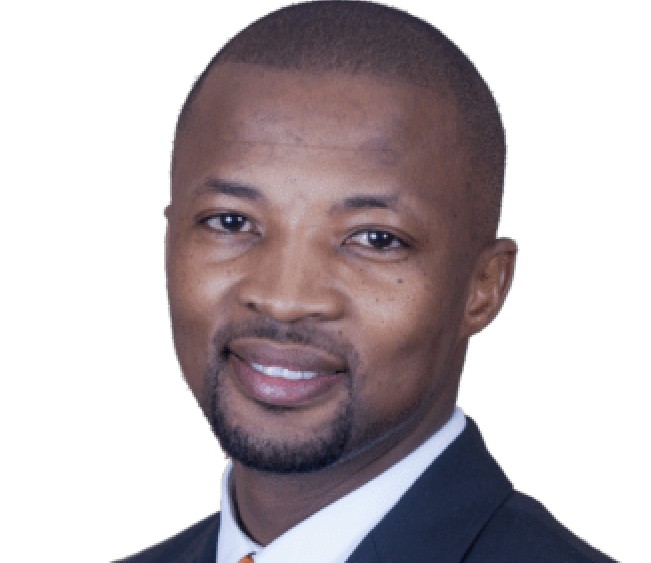 Nqabayomzi Kwankwa
Nqabayomzi Kwankwa Nqatha did not mention that the South African Social Security Agency (Sassa) stopped the R350 grant in April 2021, and it was only reinstated after civil society organisations such as the #PayTheGrant coalition vigorously lobbied for it.
Nqatha admitted that the party needed to perform better. “We are the first ones to admit that not all is rosy. We are the first ones to admit that. We are coming with a commitment to build better communities,” he said.
The Eastern Cape provincial government had the highest amount of unauthorised expenditure of all the provinces in the 2019-2020 financial year, according to the latest report by the Auditor-General (AG). There was uncertainty over whether more than a third of all Eastern Cape municipalities could continue as going concerns. The AG raised concern about the “leadership’s inability to take action against transgressors” which led to material irregularities in financial reporting, and “financial losses”.
 Ongama Mtimka
Ongama MtimkaThe financial health of municipalities in the province “continued to deteriorate” over the 2019 – 2020 financial year. The AG’s team had “numerous” meetings with the Eastern Cape provincial and local governments to try to rectify the situation.
“Despite these interventions, we continued to identify poor-quality financial statements, unreliable performance reports and transgressions of legislation,” the AG’s report stated.
Pain relief
The ATM (African Transformation Movement) was represented by its youth league’s chairperson, Cat Moji.
She said the ATM wanted to build a “corrupt-free, accountable, developmental local government” that would be an “antidote” and a “pain reliever”, to bring relief to “the pain suffered by the voter”.
“There is a disjuncture between what citizens are subjected to and what is supposed to be happening in our local government,” Moji said.
DA MP and deputy leader Chantel King said her party had a track record of service delivery where it governs. She pointed to News24’s data journalism project, “Out of order”, which ranks municipalities according to their performance.
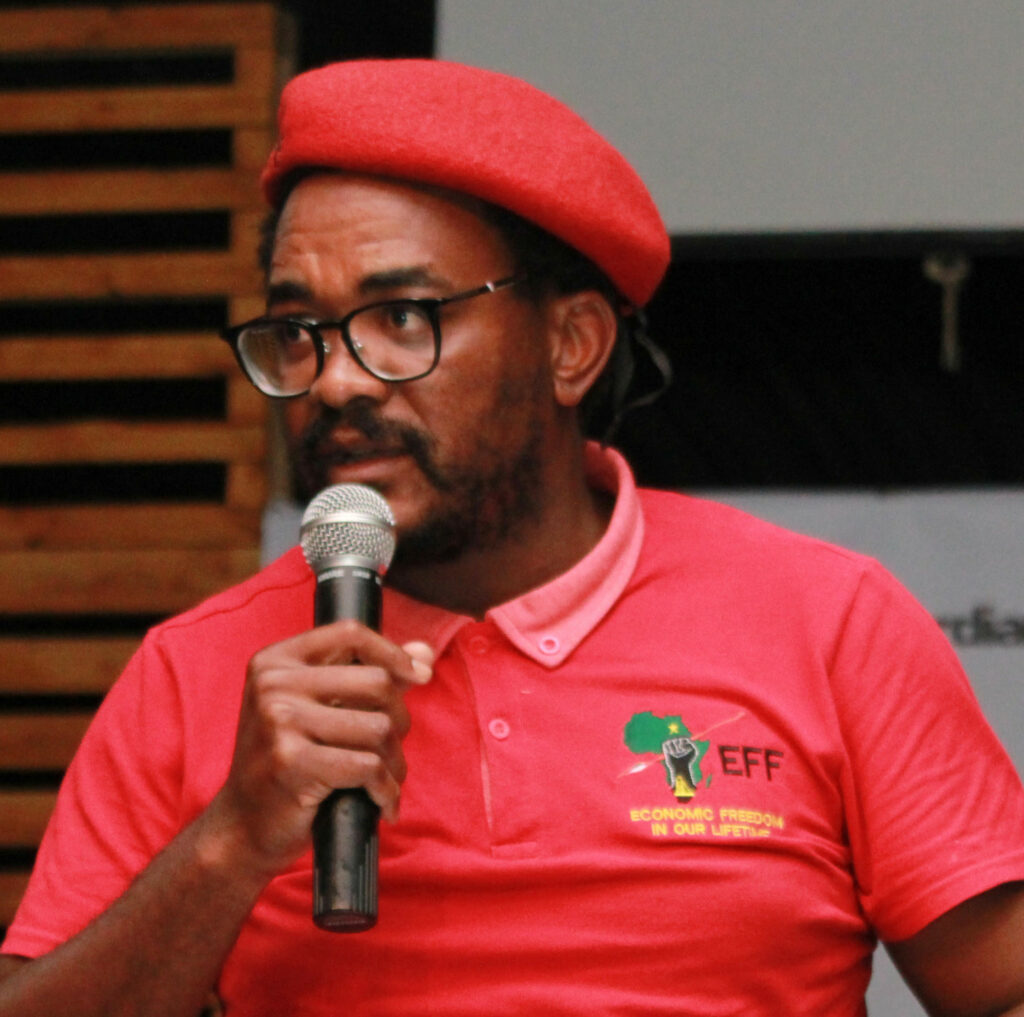 Chumani Matiwane
Chumani Matiwane“An independent report stated that Cape Town and the Western Cape has the most stable province and municipalities where we govern,” said King.
EFF (Economic Freedom Fighters) Buffalo City Metro councillor Chumani Matiwane said the ANC was a “former liberation movement” whose “time is up”.
“1994 was a false start. Promises were made that better lives, free education, access to land, water and sanitation, would be given to the people. We have a president (Cyril Ramaphosa) who is forever shocked at the high unemployment, the racial inequality, the landlessness, that we as Africans face,” he said. Matiwane said the Eastern Cape was subjected to “systematic looting” by successive ANC governments.
He called for an end to outsourcing at municipalities, saying that municipalities should have their own construction companies to build houses.
UDM (United Democratic Movement) deputy president Nqabayomzi Kwankwa said his party would ensure an “accountable, consultative” government that created jobs. He also raised concerns about outsourcing at municipalities.
“There is a tendency to outsource even services that should be rendered by the municipality,” Kwankwa said. He said there should be an audit of all services to see which ones had been legitimately outsourced and which ones should be delivered in-house.
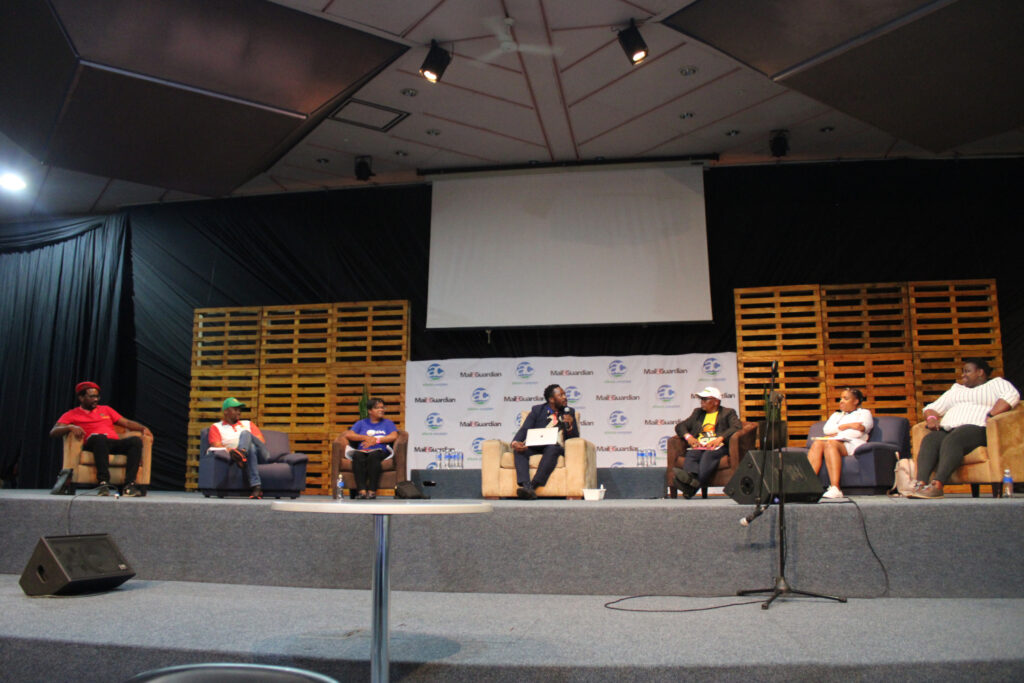 Speakers Chumani Matiwane (EFF), Nqabayomzi Kwankwa (UDM), Chantal King (DA), Ongama Mtimka (Moderator), Xolile Nqatha (ANC), Cat Moji (ATM) and Nontando Ngamlana. (Photo: Afesis-corplan)
Speakers Chumani Matiwane (EFF), Nqabayomzi Kwankwa (UDM), Chantal King (DA), Ongama Mtimka (Moderator), Xolile Nqatha (ANC), Cat Moji (ATM) and Nontando Ngamlana. (Photo: Afesis-corplan)
Kwankwa spoke about the UDM’s link to the struggle against apartheid. UDM leader, Bantu Holomisa, was the ruler of the former Transkei during apartheid. He later joined the ANC but left the party to form the UDM in 1997.
Kwankwa said the liberation movements in South Africa had sought refuge in the former Transkei during apartheid. “And we helped them, to make sure they could deliver freedom for South Africa.”He said the UDM was open to coalitions, provided that the partners aligned with the UDM’s values.
Corruption
Nqatha said the ANC wanted to “strengthen” accountability mechanisms that were already in place, and to ensure transparency around tendering, to which several audience members responded, “how?”
Nqatha said the Eastern Cape provincial government had gone public with its Covid-19 expenditure before National Treasury made this a requirement for provinces. He said the province had partnered with Rhodes University to train municipal officials in better financial management.
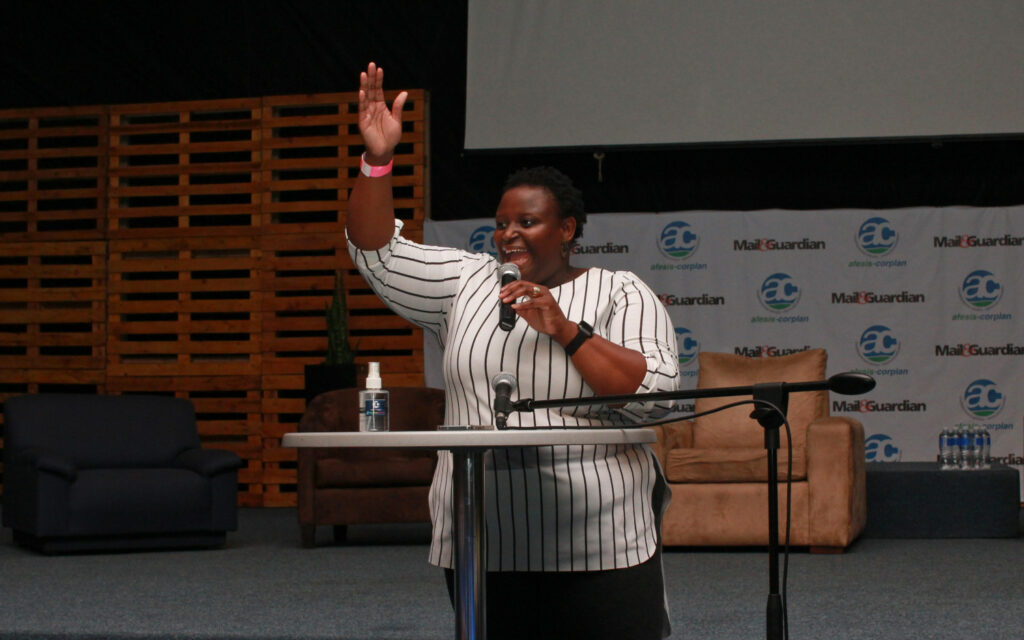 Nontando Ngamlana, Executive Director of Afesis-corplan, addressing the audience at the Battle of the Manifestos in East London, Eastern Cape.
Nontando Ngamlana, Executive Director of Afesis-corplan, addressing the audience at the Battle of the Manifestos in East London, Eastern Cape.
The UDM’s Kwankwa said it was difficult to directly combat corruption at local government level, because municipalities could not do the National Prosecuting Authority’s work. But, he said municipalities could ensure that officials under investigation for corruption were not in their positions while the investigations were ongoing.
Moji said the country needed “economically-viable local government” staffed by “diligent” representatives. She said municipalities needed to be “insulated from problems associated with political patronage”.
“Currently many municipalities are dysfunctional because they are held hostage by political battles,” said Moji. Under an ATM government, councillors would report to communities on a quarterly basis, on the municipalities’ Independent Resource Development plans, she said. An ATM government would also conduct lifestyle audits on all councillors.
The EFF’s Matiwane said the party would conduct skills audits in municipalities to establish whether officials were qualified to do their jobs. The EFF also wanted the internal audit units at municipalities to be given greater capacity. And, risk management units should be created, as well as monitoring units that will track service delivery.
Politics of race
Race also emerged as a key issue for voters during the debate. Nqatha accused the DA of using black people as “voting fodder” but denying them opportunities. In response, King said, “When you have nothing to offer but the race card, you have failed. Where’s Oscar (Mabunyane)? Where’s Oscar?”
She said that the DA provided services to everyone regardless of race, adding: “In the Western Cape, recently in Langa and Gugulethu, we have handed out more housing projects in those areas. So we don’t waste time playing politics on race. We have better things to do.”
King said the DA government in the Western Cape linked people in the Expanded Public Works Programme to skills development initiatives to ensure that they received skills training.
Meanwhile, the UDM was accused of being a “gateway” for “white parties” to get into power, through forming coalitions. Kwankwa said this allegation was incredibly offensive. “We’ll go into a coalition with any party that is a progressive force, that has a progressive agenda,” Kwankwa said.
But despite their differences, the parties agreed on one thing: in a province beset by the poor management of public resources and tainted by allegations of graft, corruption must end. And if the audience participation is anything to go by, it will be front-of-mind for many, come election day. — Sarah Evans